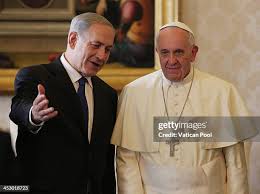The Political Legacy of Benjamin Netanyahu

Introduction
Benjamin Netanyahu, one of Israel’s most influential political figures, has been a dominant force in the country’s political landscape for over three decades. Serving multiple terms as Prime Minister, Netanyahu’s leadership has profoundly shaped Israel’s domestic and foreign policies. As the nation grapples with ongoing security challenges, economic instability, and social divisions, understanding Netanyahu’s influence is crucial.
Recent Developments
As of 2023, Netanyahu remains at the helm, leading a right-wing coalition government. His administration has faced significant public scrutiny and protests following controversial judicial reform proposals designed to limit the power of the Supreme Court. Critics argue that these reforms threaten democracy and judicial independence in Israel.
Netanyahu’s government has also been marked by escalating tensions with the Palestinian territories, especially in light of recent violence and clashes in the West Bank and Gaza Strip. The situation has seen international attention and condemnation, with calls for de-escalation and a renewed focus on peace negotiations. Netanyahu’s approach has prompted both domestic and international critiques, especially regarding human rights.
International Relations
On the global stage, Netanyahu has sought to enhance Israel’s relationships with other nations. The normalization agreements with several Arab countries, known as the Abraham Accords, marked a significant diplomatic achievement for his government, fostering economic and security ties. However, dealing with Iran continues to pose a major challenge, as Netanyahu remains adamant about thwarting Iran’s nuclear ambitions, advocating for a hardline stance.
Impact on Israeli Society
Netanyahu’s long tenure has significantly polarized Israeli society. His supporters praise his strong security policies and economic management, while opponents decry his divisive rhetoric and the increasing militarization of the state. Social issues such as inequality and the cost of living have also burgeoned into key areas of contention among Israeli citizens.
Conclusion
As Israel heads into elections, Netanyahu’s political legacy and future shape up to be pivotal for the nation’s trajectory. The balance between security and democratic values, Israel’s relations with its neighbors, and the ongoing domestic challenges will heavily sway public opinion. There is much at stake, and Netanyahu’s decisions in the coming months will undoubtedly have lasting repercussions for Israel and the region.







